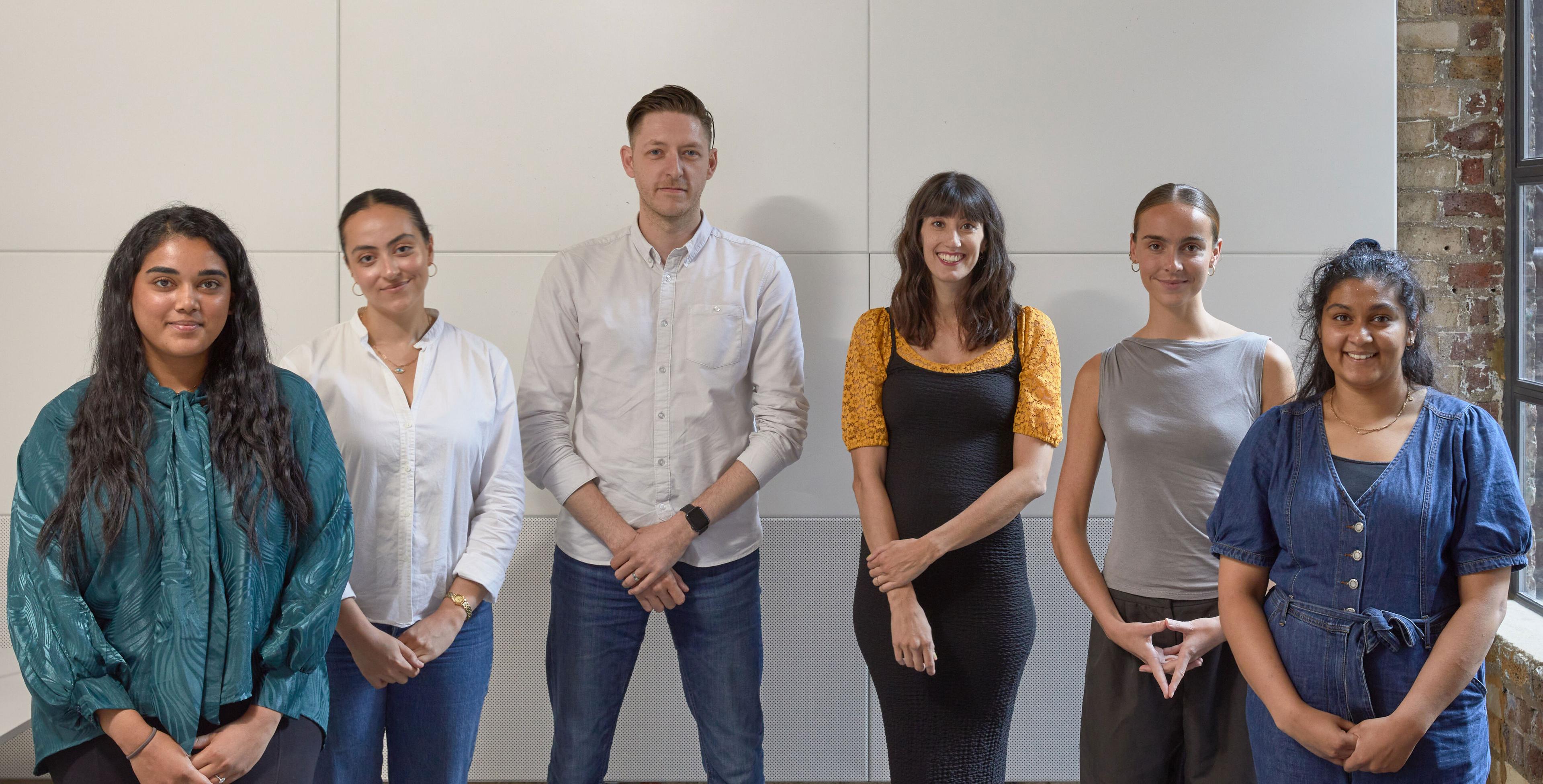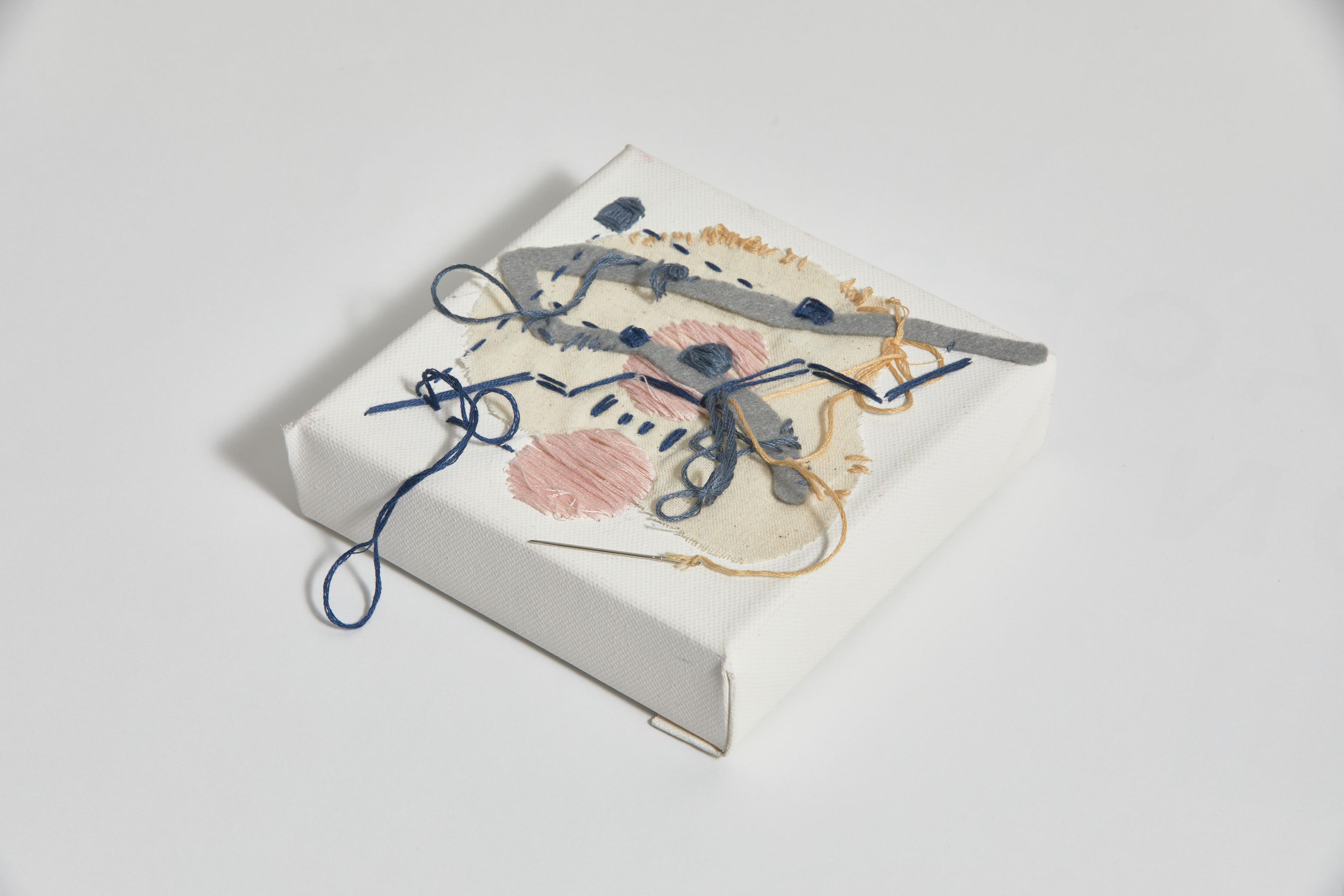Ambassadors 2023

The 2023 mentors and ambassadors: Alyina Ahmed, Yasmin Nagdy, Peter Greaves, Sara Veale, Cecilia Morgan and Simone Dos Santos The Future Spaces Foundation is proud to publish high-quality research projects by two aspiring built environment professionals, both recruited through FSF Ambassadors, a new researcher development programme launched in 2023. The initiative is designed to help participants develop formal skills for research and enquiry into the social issues surrounding the built environment.
Cecilia Morgan and Yasmin Nagdy, both final-year postgrads at the Manchester School of Architecture, joined the FSF in August 2023 as our inaugural researchers-in-residence, working with a team of mentors over a six-week period to develop an original research question each into a project with written and creative outputs. They also participated in a series of workshops on best-practice research strategies and, following independent fieldwork in their respective areas of research, formally presented their findings to the FSF for appraisal.
Cecilia – whose Master’s thesis explores the integration of social, technical and sensory elements in the built environment – used archival research, news analysis and first-person interviews to consider the relationship between established music venues in London and the encroachment of nearby residential development. Her final project combined a research paper examining planning policy in relation to a landmark case study on this topic with a creative sound collage of recordings she took at the historic George Tavern in London’s East End.
“My theme is something that I worked on at the end of my bachelor’s degree… this really allowed me to go back to it and realise why it was so interesting in the first place,” Cecilia said. “We got a lot of feedback and a lot of questions [from the FSF team], and that really helped me think about where I might with this research or how to think about the next research task I undertake.”
Yasmin investigated various visual depictions of the 15-minute city and their influence on the public’s perception of the concept, with a focus on dispelling emerging concerns. She used a series of ethnographic interviews to conceive a bespoke cartographic depiction, weaving a physical tapestry from hand-drawn neighbourhood maps by her interviewees, and complemented this with a paper that considers academic definitions, historic visualisations and contemporary political interpretations of the 15-minute city.

“Participating in the programme has been really beneficial to the way I approach research and how I then visualise that,” Yasmin said. “One component of the project was to create an art piece, and that was really liberating to have a creative output, which I don’t feel I was able to do as much in the academic world.”
Sara Veale, managing editor of the FSF, said: “We’ve been so impressed with the consideration and rigour our Ambassadors have brought to their research. They engaged deeply with their respective subjects, and it was wonderful to see them evolve their initial ideas into complex projects involving interviews, site visits and high-level analysis.”
Peter Greaves, architectural lead at the FSF, added: “I think we at the FSF have gotten as much out of this programme as the Ambassadors themselves, and we’re really looking forward to taking it forward in the future as an annual event.”
You can see our 2023 Ambassadors’ final projects here , along with this short film documenting the programme.